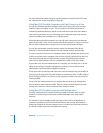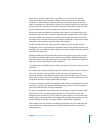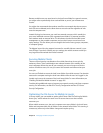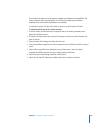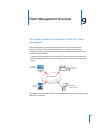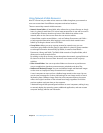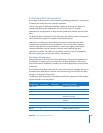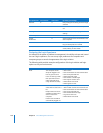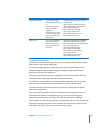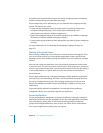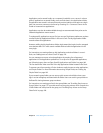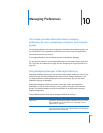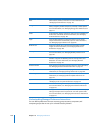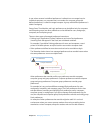
150 Chapter 9 Client Management Overview
Designing the Login Experience
An example of the power of preference management is the ability to shape and control
the user’s login experience. You can set up Login preferences for computers and
computer groups to control the appearance of the login window.
The following table provides example configurations of the login window and login
options to suit your environment.
Network %%Proxy settings for accessing servers through
a firewall
Parental Controls % Web access and time limits on computer
use
Printing % Printers a user can use, and page footer
settings
Software Update % Server to use for updates
System
Preferences
% System preferences that are enabled on the
user’s computer
Time Machine % Which volumes are backed up and how
long the backup files are retained
Universal Access % Hardware settings for users with special
visual, auditory, or other needs
This preference
Tailors the work
environment
Limits access
and control
By letting you manage
Environment Desired effect Key login settings
Kiosk The computer should
always be logged in as a
local or guest account.
Users can also log in with
their personal accounts
(either externally or by
using network accounts).
 Show “Other”
 Don’t show Restart or Shut Down buttons
 Don’t show password hint
 Enable automatic login
 Don’t enable >console login
 Don’t log out inactive users
 Enable external accounts
 Enable guest account
Educational lab Users should be able to
select their account from a
list.
People without accounts
shouldn’t be able to shut
down or restart the
computer.
Inactive users should be
automatically logged out.
 Message: “Welcome to the Math Lab.”
 Show mobile accounts and network users
 Don’t show Restart or Shut Down buttons
 Don’t show password hint
 Don’t enable automatic login
 Log out inactive users
 Enable external accounts



